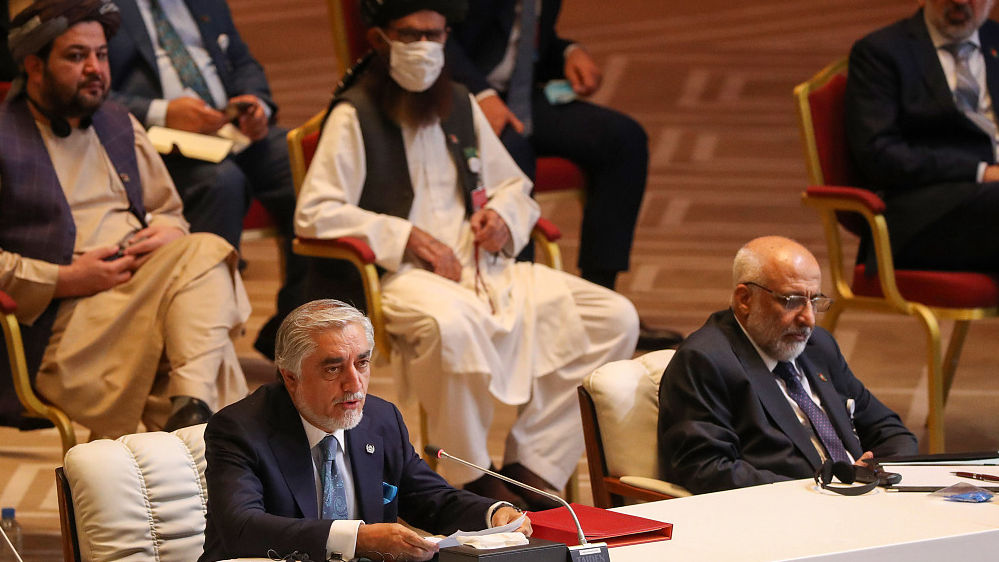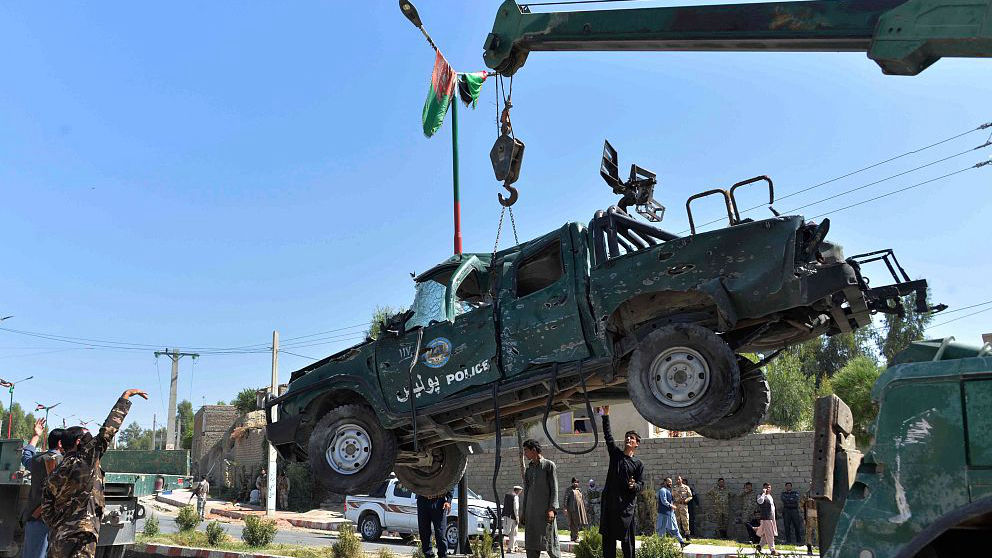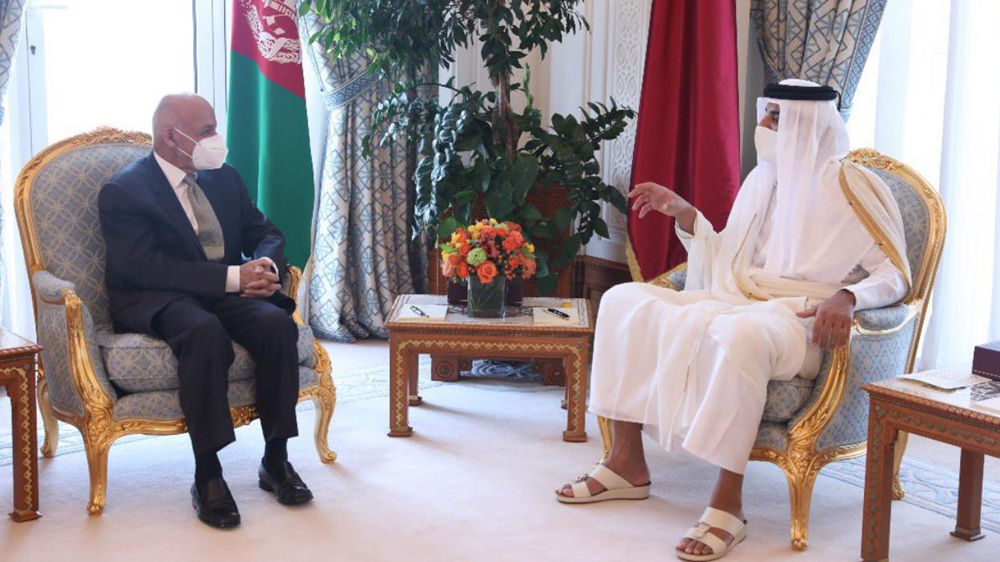
One of the peace talks between Afghan government and Taliban is held in Doha, Qatar, September 12, 2020. /CFP
One of the peace talks between Afghan government and Taliban is held in Doha, Qatar, September 12, 2020. /CFP
Afghan President Ashraf Ghani called on the Taliban to "have courage and declare a national ceasefire" on Tuesday as he visited Doha, Qatar where peace talks between government and Taliban negotiators have stalled.
At the end of a two-day trip, his first to Doha since the talks began in September, Ghani gave a lecture where he said Afghanistan's long conflict had to be resolved through negotiation, "not under the barrel of the gun."
Talks between the two sides, hosted by the Gulf state and aimed at ending Afghanistan's 19-year war, have slowed over disagreements on how to frame a code of conduct that will guide the broader talks.
The Taliban were reported to say that they have not reached consensus on a dialogue mechanism or negotiations agenda with the Afghan government.
The two sides have made little progress so far, with President Ghani saying: "We cannot end 20 years of war in 20 days."

Afghan security forces remove a damaged police vehicle at the site of a car bomb attack targeting Laghman provincial governor's convoy, in Laghman Province, Afghanistan, October 5, 2020. /CFP
Afghan security forces remove a damaged police vehicle at the site of a car bomb attack targeting Laghman provincial governor's convoy, in Laghman Province, Afghanistan, October 5, 2020. /CFP
Difficulties to move forward
Headline issues, including a ceasefire or the type of governance that will shape Afghanistan's future, have yet to be discussed.
The Taliban and the Afghan government are struggling to agree on common language on the two issues before they can establish an agenda.
The Taliban, who are Sunni hardliners, are insisting on adherence to the Hanafi school of Sunni Islamic jurisprudence, but government negotiators say this could be used to discriminate against Hazaras, who are predominantly Shiite, and other minorities.
Another contentious topic is how the U.S.-Taliban deal will shape a future peace agreement and how it will be referred to.
Meanwhile violence continues to rage in Afghanistan, with a suicide attack targeting a provincial governor killing at least eight people on Monday.
Despite the difficulties, the two sides have insisted that they continue to informally discuss ways to move forward.

Afghanistan President Ashraf Ghani (L) meets with Qatar's emir, Sheikh Tamim bin Hamad Al-Thani, in Doha, Qatar, October 6, 2020. /@SediqSediqqi
Afghanistan President Ashraf Ghani (L) meets with Qatar's emir, Sheikh Tamim bin Hamad Al-Thani, in Doha, Qatar, October 6, 2020. /@SediqSediqqi
Support from Qatar and U.S.
On Tuesday, Ghani met with Qatar's emir, Sheikh Tamim bin Hamad Al-Thani, with Doha reaffirming its commitment to facilitate the peace process.
The emir of Qatar spoke highly of President Ghani's efforts in the Afghan peace process and said that he hoped Afghanistan will find peace and stability through both countries' efforts.
Qatar is currently hosting the Afghan and Taliban negotiating teams and has been instrumental in assisting where necessary to get the peace talks off the ground.
President Ghani expressed his gratitude to emir of Qatar for the gracious hospitality extended to the Islamic Republic Afghanistan Negotiation team and his support for the Afghan peace process, the president's spokesman Sediq Sediqqi tweeted.
Also in Doha, Zalmay Khalilzad, the U.S. negotiator on Afghanistan, tweeted after a meeting with Ghani that the "president should not let the opportunity for peace to slip away" and that the United States remains ready to assist.
(With input from agencies)